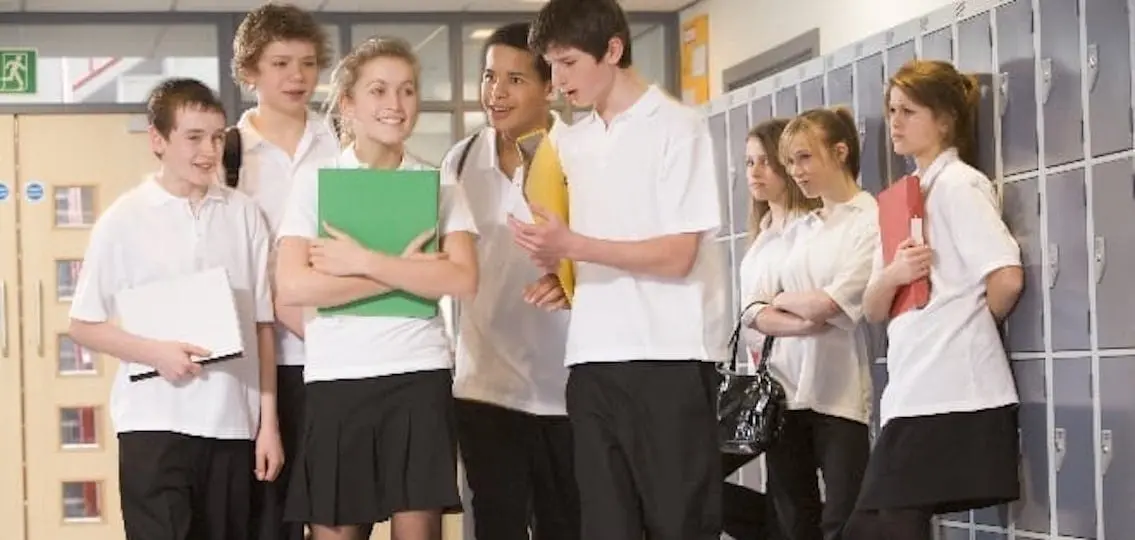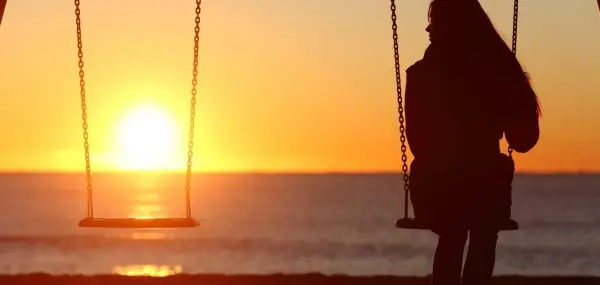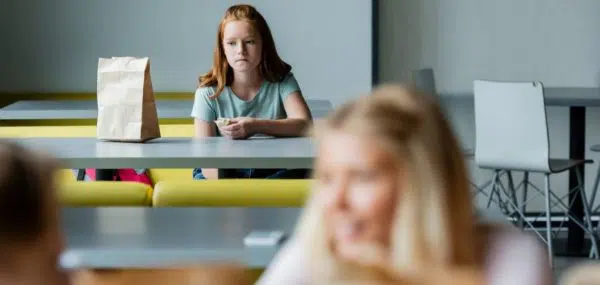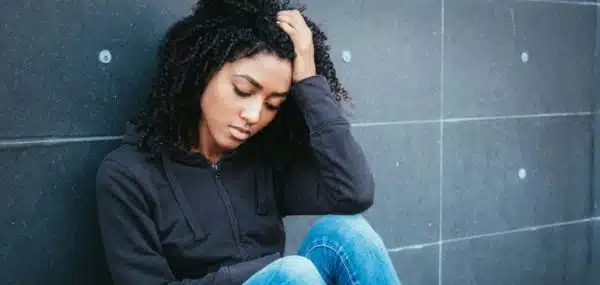Fitting in is a primary concern for just about every adolescent. As they seek relationships with others based on shared interests, sometimes cliques surface, leading to feelings of discomfort and insecurity. And then there is the dastardly notion of popularity, which can wreak havoc on just about anyone.

Below, three teenagers recount their experiences in middle school and high school. They honestly share how they struggled with and navigated the social dynamics at their schools as well as what they learned from reflecting on their pasts.
TEEN 1 | Kathleen Naymon
Like many middle school students, I experienced teasing and bullying. I went to a very small middle school, about 50 students per grade. So everyone knew one another well, maybe too well. The favorite bullying tactic was creating and using code names. It made it easier to gossip about people in the open with code names.
For example, my close friend was deemed to be nosy and clingy, so the “popular girls” gave her the moniker, The Nose. They would use the name around her, and naturally, she figured it out.
To my knowledge, I was never given a code name, but I was often teased by this core group of girls for being a “goody-goody” and caring about school. At times, middle school was unbearable.
Luckily, when I arrived at high school, code names and other forms of bullying seemed to disappear. I went to an all-girls high school, which I think helped. No one cared about the prettiest and the most popular. Learning was at the forefront of the high school experience, and there seemed less to fight about.
As I’ve gotten older, I’ve thought a lot about my middle school years and why the teasing bothered me so much. As a member of a small class, the pressure to fit in was intense. If you did something uncool, everyone would know. As a 13-year-old, I also cared way too much what people thought of me.
Everyone knew everything about you—your fashion sense, your taste in music, your family life, how much money your parents make. All could be used against you if they weren’t considered “normal” by the popular crowd.
I remember being teased because I only wore skirts instead of pants and because my family voted for Bush. Even the smallest things had the potential to feed into an uncomfortable situation. At the end of the day, it was worth following the crowd to avoid bullying.
But once my classmates hit 15, the things that made you different now made you cool.
At this age, no one wants to appear as if they’re following mainstream culture. And even if you are still “following” some prescribed teenage notion of what’s cool, no one is keeping track anyway.
While there are still defined groups of friends at my school, I wouldn’t call any of them cliques. Friends come and go fluidly. No group is exclusive. There are no popular girls, no theater geeks, no jocks. Everyone is mixed in a way that made high school the best four years of my life. The girl who is captain of the soccer team is also an award-winning artist. The MIT-bound scientist is also president of the LGBT alliance. The girl who parties on the weekend is going to a liberal arts school to study Classics. Not one of my classmates fits into a clique, and we like it that way.
I would never go back to middle school, but I’m glad I had to deal with teasing at one point. I think excessive bullying is uncalled for, but the real world is not a bubble of nice, considerate people. Teasing and being teased is a common part of the teenage experience. I think it made me stronger.
TEEN 2 | Samantha Zabell
My understanding of popularity is from TV and media. There’s a hierarchical system where one person rises to the top of the social food chain. Those below lie in rank. A group of high social status teens surround the “leader,” but live below him. Often, they are bullies. Often, they are privileged. Always, they are successful.
But for me, popularity in high school was very different. There were groups, but I couldn’t pinpoint “the most popular.” And these groups changed. My friends senior year were different than my friends freshman year.
Some of my friends were well-liked. And some weren’t. I had a group of kids, but I didn’t feel popular or unpopular. I didn’t sit against a wall during school dances. And I always had someone to sit with in the cafeteria.
What led to my unhappiness in high school was social exclusion. An innocent movie night that I never heard about left me feeling hurt and insecure. My mother tried to assure me that it was a simple mistake or an oversight, but she was wrong. As “simple oversights” continued, I began to understand that it wasn’t a matter of mistake. It may not have been intentional, but it was a matter of popularity: who was high on the ladder and who was not.
I was not on their radar, and so my invite was not important.
In retrospect, I think everyone goes through a point where they’re struggling to fit in. In fact, I think that when someone says they were never excluded, even someone “popular,” they have forgotten their truth. That’s how high school is, especially for girls.
High school girls have tunnel vision; they cannot always see past their own Friday night plans or their desire to be friends with the homecoming queen. The good news is, tunnel vision starts to widen during high school and expands even more in college. I’ve certainly found that my friends in college look out for everyone’s interests. Once you’re in college, popularity isn’t as important anymore. It’s an unfortunate flaw of the high school experience, but that doesn’t mean it will follow you everywhere.
But when I was living it, those who enjoyed perceived “popularity” seemed so happy, which often led to my wondering: “What did they have that I didn’t?”
TEEN 3 | Christian Roberts
For many rising ninth graders, high school promises fascinating opportunities to establish new friendships. For me, high school conjured feelings of dread and anxiety. This was because, unlike my peers, I was always struggling to fit in. I was unable to make connections with others.
During school days, I sat alone in the back of the room, praying that the teacher wouldn’t call on me. To make things worse, I suffered from severe Attention Deficit Disorder. On the rare occasion a classmate struck up a conversation with me, I would say awkward things. By the middle of tenth grade, my social life had worsened, leaving me with only a few distant friends. I had no real outlets, and I spent most of my free time playing video games or arguing with my parents. Tenth grade was painful, and something needed to change.
I began to ponder what I could do differently. This was not easy, for I had dug myself into a deep social and academic hole. Over the next few weeks, I tried to strike up conversations with people and participate in classroom discussions. My efforts didn’t help because I had a reputation as the strange kid who said inappropriate things in an attempt to be funny.
After failing to turn things around, I consulted with Beatrice Hair, Executive Director of the Salisbury Tutoring Academy. Wanting to transform my life, I swallowed my pride and started working with the program. Mrs. Hair saw my eccentric characteristics and suggested drama club. As our conversation continued, I became convinced that the drama club might be the place for me. The next day, I signed up and immediately began participating in their activities.
I was surprised by how quickly things began to improve; people noticed me as being more than just “that weird guy,” and I started forming friendships.
For the rest of tenth grade, I assisted with the club productions, gaining recognition from everyone around me. My efforts in the club paid off, and at the end of the school year, I was elected as the drama club vice president. I was overjoyed at this accomplishment, and for the first time since elementary school, I actually looked forward to the start of school.

Throughout eleventh grade, things continued to improve. I made more friends and improved my social skills. I was cast in a lead role in one of our school plays, and I could not have been more pleased. After the production, I was invited to go out to eat with the cast. Looking back on who I was in ninth and tenth grade, it feels almost surreal seeing how much things have improved. Now entering my senior year of high school, I can only look forward to the great things yet to come.




